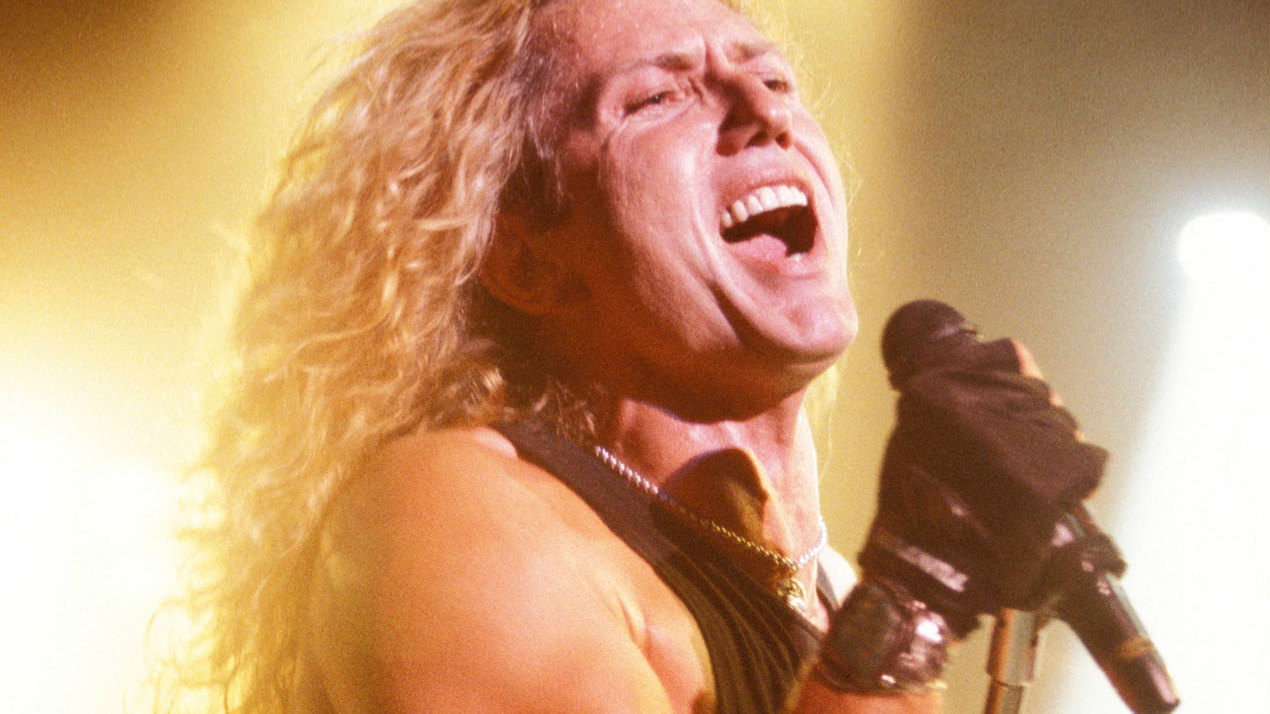David Coverdale: How We Made The Coverdale Page Album
Whitesnake’s David Coverdale looks back on his brief collaboration with Led Zeppelin’ Jimmy Page – and why the album they made together is an unsung classic

In 1993, two of the world’s biggest rock stars released one of the decade’s unsung classics. Former Led Zeppelin guitarist Jimmy Page and ex-Deep Purple/current Whitesnake vocalist David Coverdale had been brought together by legendary A&R man John Kalodner in the sort of tag-team rock fans dream of (and Page’s ex-Zeppelin partner Robert Plant has nightmares) about.
The sole, self-titled album these two big beasts made together was a classic. Prosaically titled Coverdale Page, it revisited the pair’s illustrious pasts – opener Shake My Tree was a blues rock colossus in the vein of Zep’s Nobody’s Fault But Mine, Take A Good Look At Yourself drank from the same well of lushness as Whitesnake’s Here I Go Again, while Whisper A Prayer For The Dying existed in a glorious place where Stairway To Heaven met Kashmir.
Despite plans to make another album, it wasn’t to last – after a handful of shows in Japan, the partnership dissolved. Page reunited with Robert Plant for the unplugged No Quarter album, while his erstwhile colleague put together a new Whitesnake line-up.
More than 20 years later, Coverdale looks back on how it all came together and why Coverdale Page remains one of rock’s great ‘what ifs’…

Can you remember whose suggestion it was to make a record together – yours or Jimmy Page’s?
The synchronicity was rather special. I’d spoken to a mutual acquaintance of JP and mine, my friend and agent, Rod MacSween, that I was taking some time off to recover from three or four years non-stop hard work. Around the same time Jimmy was telling Rod he wanted to get back to work and could he recommend any singers he could check out, and Rod told him I was putting the Snake on hold for a while. That was all the energy that was needed.
What are your memories of making the album?
Sign up below to get the latest from Classic Rock, plus exclusive special offers, direct to your inbox!
Working with Jimmy was an utter treat. He was and still is a hero of mine. The album took a lot longer than we’d hoped, but, personally, I treasure every aspect. The hardest part for me was losing my mam during the recording, but Jimmy was very gracious and supportive and we put the work on hold so I could be with her. Nothing else came near to being as hard as that time for me.
Why do you think the two of you gelled so well?
Same shoe size. Ha Ha! Who knows? We just did and we continue to. I so wish he had something to get his amazing chops into. He deserves the best.
- Ten facts about Deep Purple's Made In Japan
- Led Zeppelin in India: the true story behind the secret Bombay sessions
- Bonham, Grohl & Led Zeppelin’s legacy: An epic Jimmy Page interview
- The Growing Pains Of Whitesnake's David Coverdale
If you had to put one track from the album in a time capsule for future generations, which would it be?
For me, it’s Don’t Leave Me This Way. When we came together we presented each other with a couple of song ideas that we’d both presented to former associates and didn’t get a bite. Mine was Don’t Leave Me This Way and JPs was the kick-arse riff to Shake My Tree. Soon as I heard that I said, “I’ll have that, thank you very much…”
You never played any shows outside of Japan. Why not?
I think when we sat down in New York to see if we wanted to work together we’d discussed giving it three years and with one thing or another the three years were up in Japan. We definitely should have played more dates. We were pretty good together.
Why didn’t you make a follow up?
We actually started to, to be honest. The muse was upon us. But Jimmy’s manager at the time insisted we call it a day, so, we stopped… though there are a couple of corkers in the can.
If Jimmy Page called you right now and said, “Fancy doing it again?”, what would you say?
Fancy doing what again? Ha Ha! I love Pagey and would be there for him. I’d love to do an expanded, remixed CP album. I have so much material that a lot of people would love to see and hear. All the original demos, pre-production and a ton of home video from the very first day we sat down to write at my house all the way through till the Japanese tour. If it’s meant to be, it will happen.
Geoff Barton is a British journalist who founded the heavy metal magazine Kerrang! and was an editor of Sounds music magazine. He specialised in covering rock music and helped popularise the new wave of British heavy metal (NWOBHM) after using the term for the first time (after editor Alan Lewis coined it) in the May 1979 issue of Sounds.

